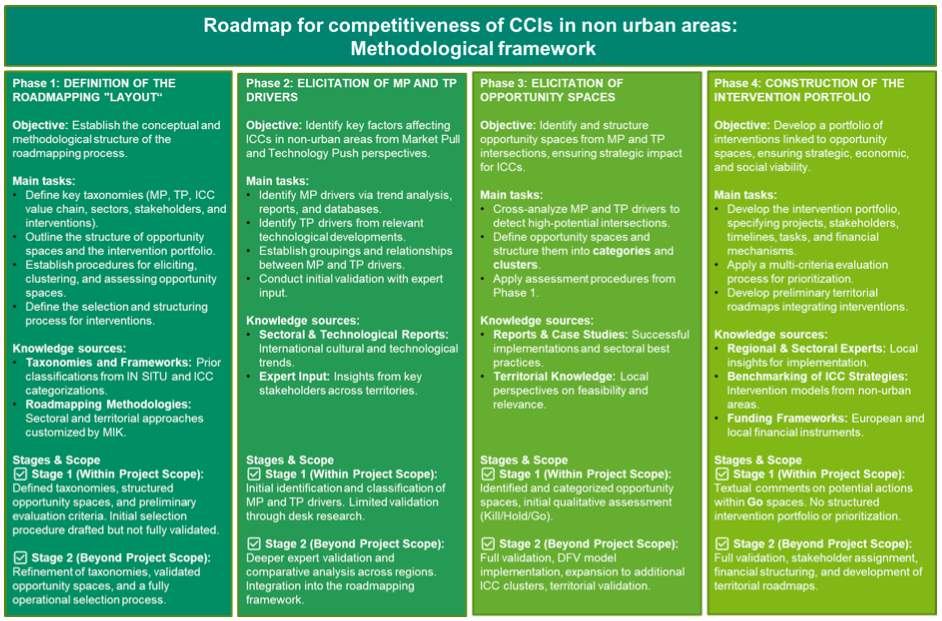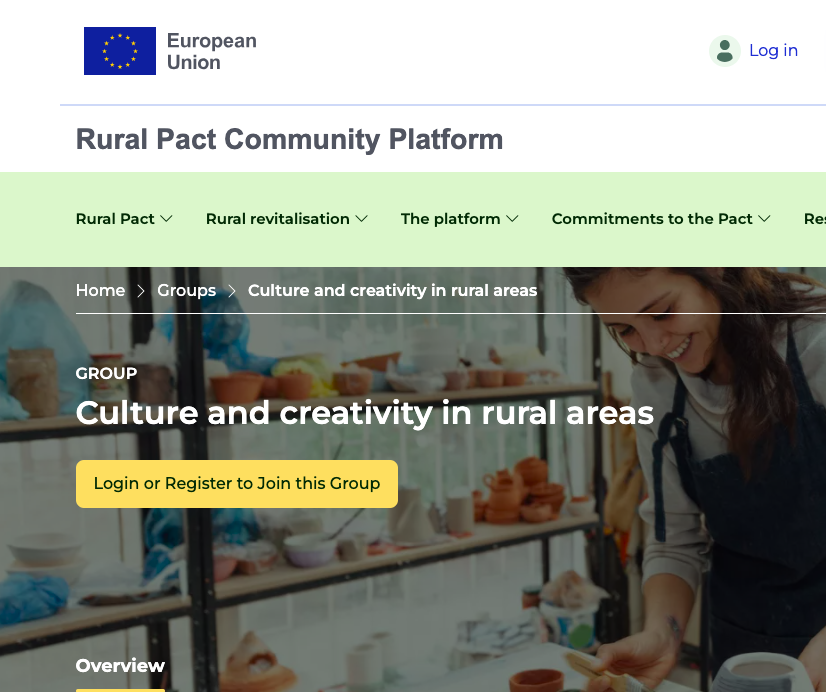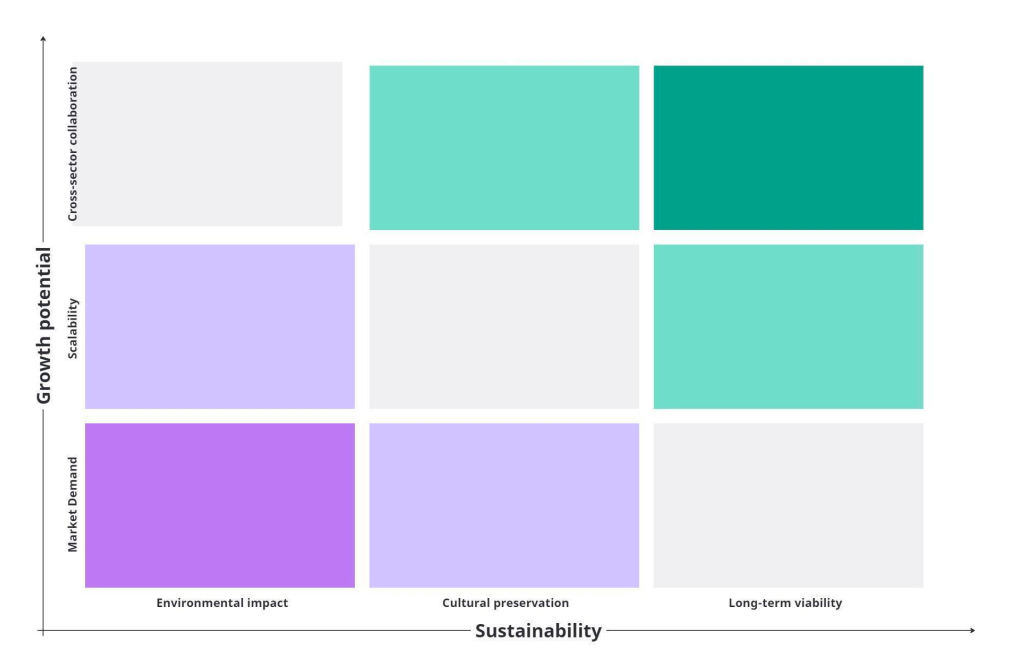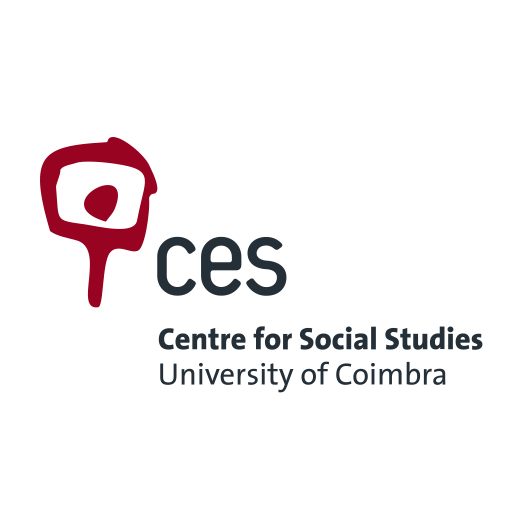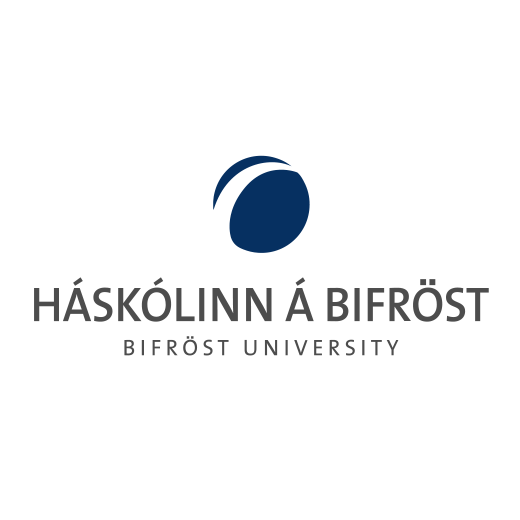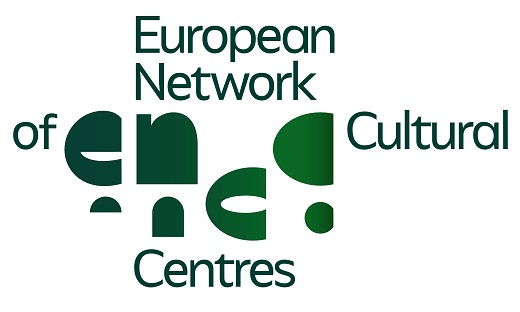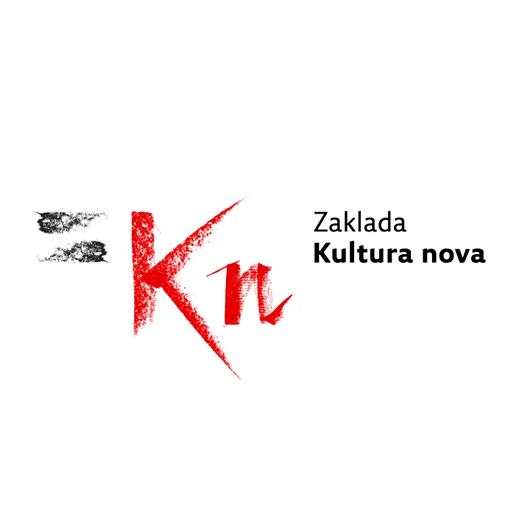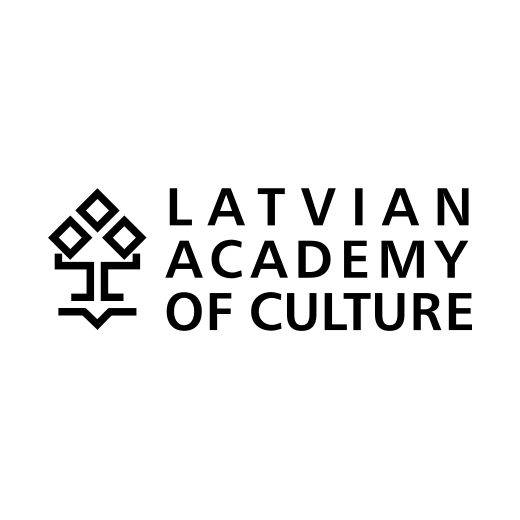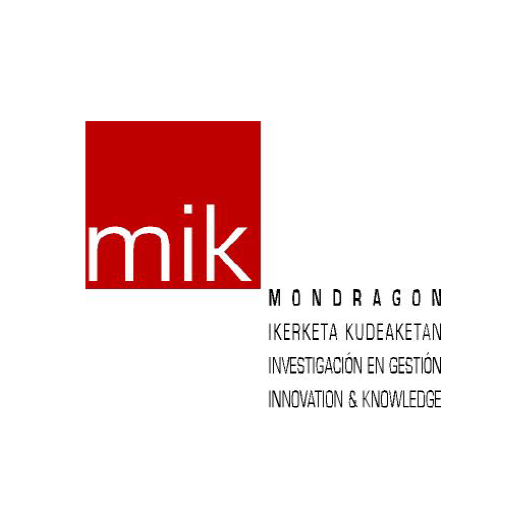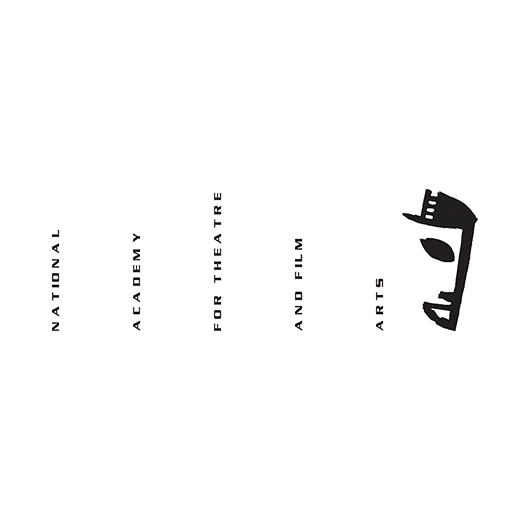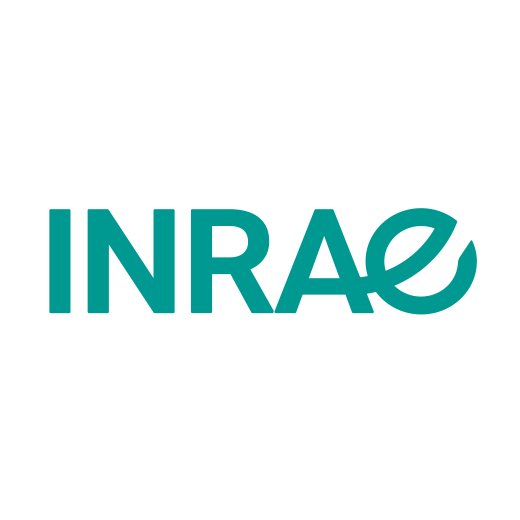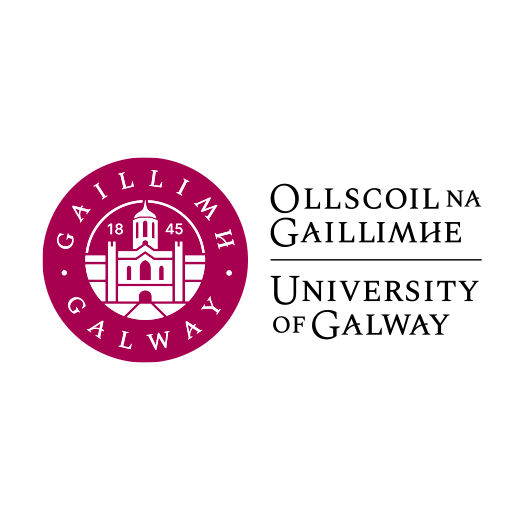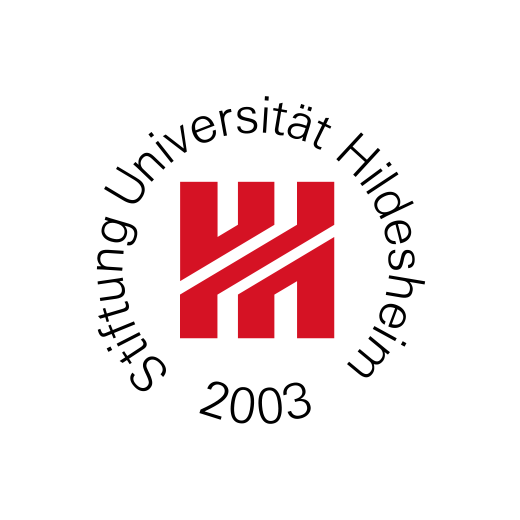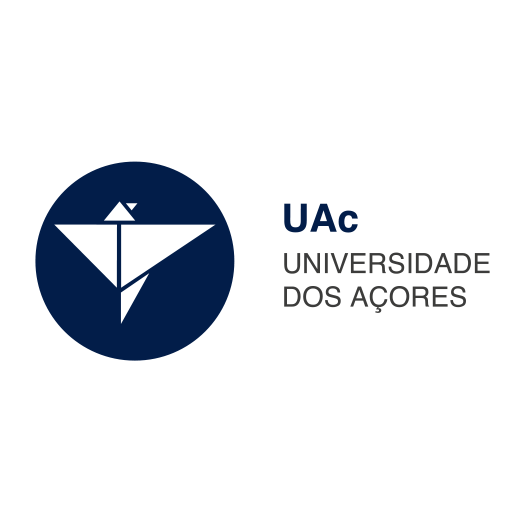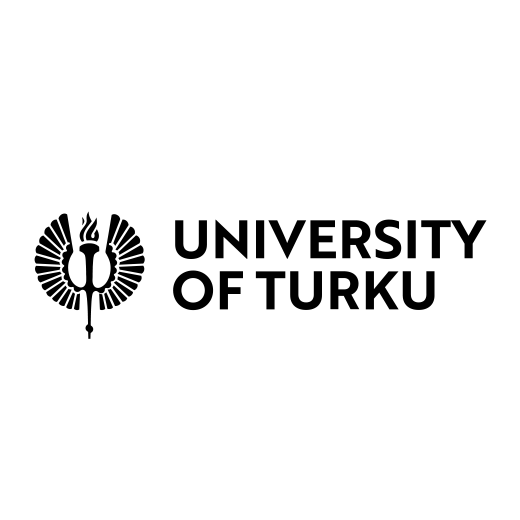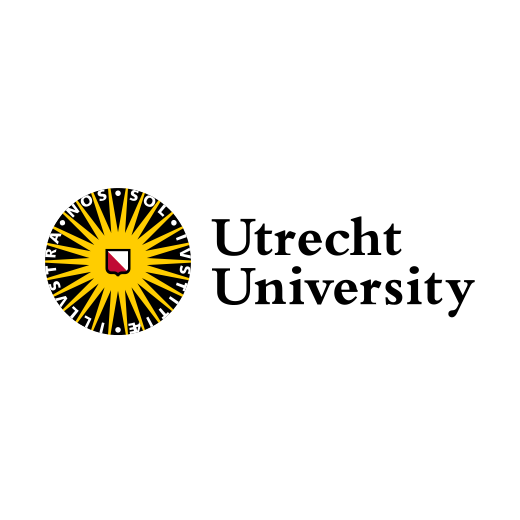From 19 to 21 February 2024, the IN SITU partners came together in Galway, Ireland – one of the IN SITU Lab locations – to analyse and discuss the present state of research and practice, as well as to jointly plan the next chapters of this dynamic Horizon Europe-funded project (Grant Agreement no. 101061747). This in-presence working meeting, themed “Contributions and Diversifications,” was hosted by the local IN SITU partner, the University of Galway (UG).
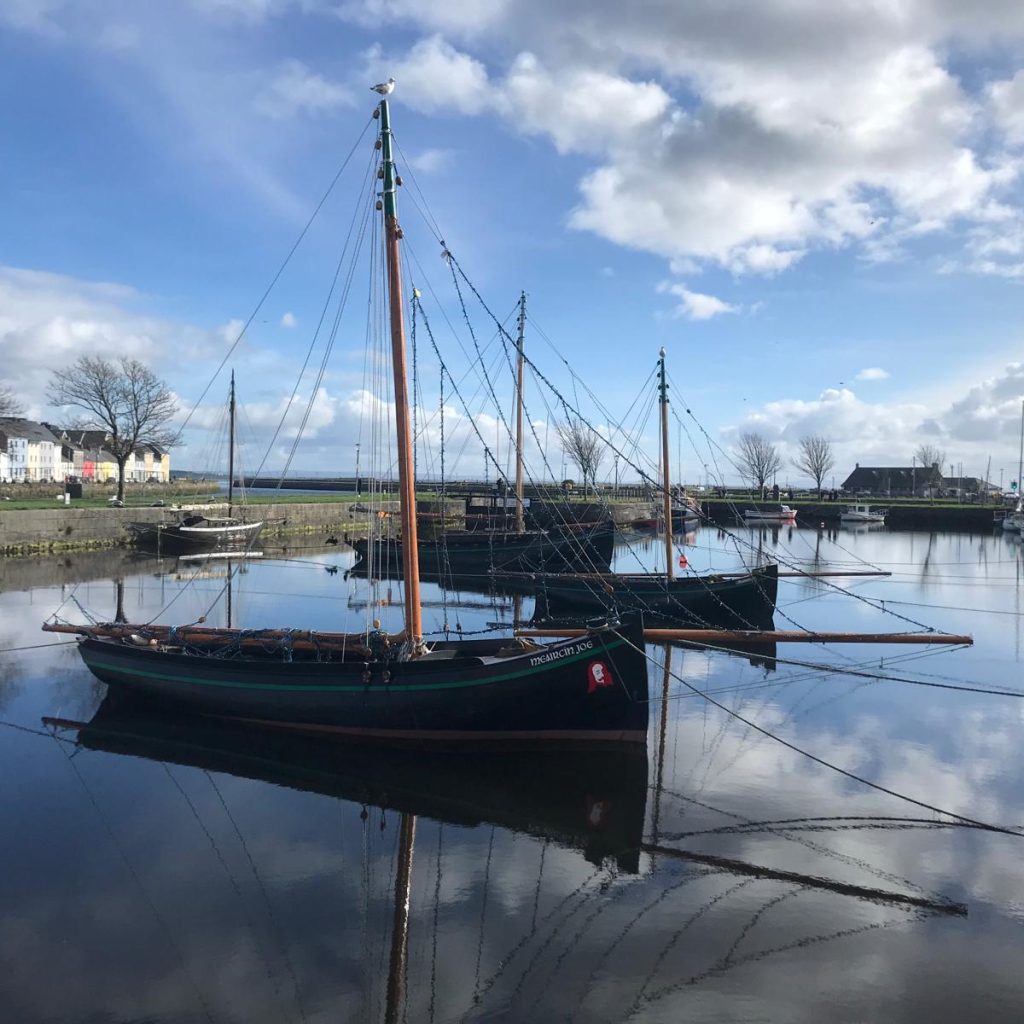
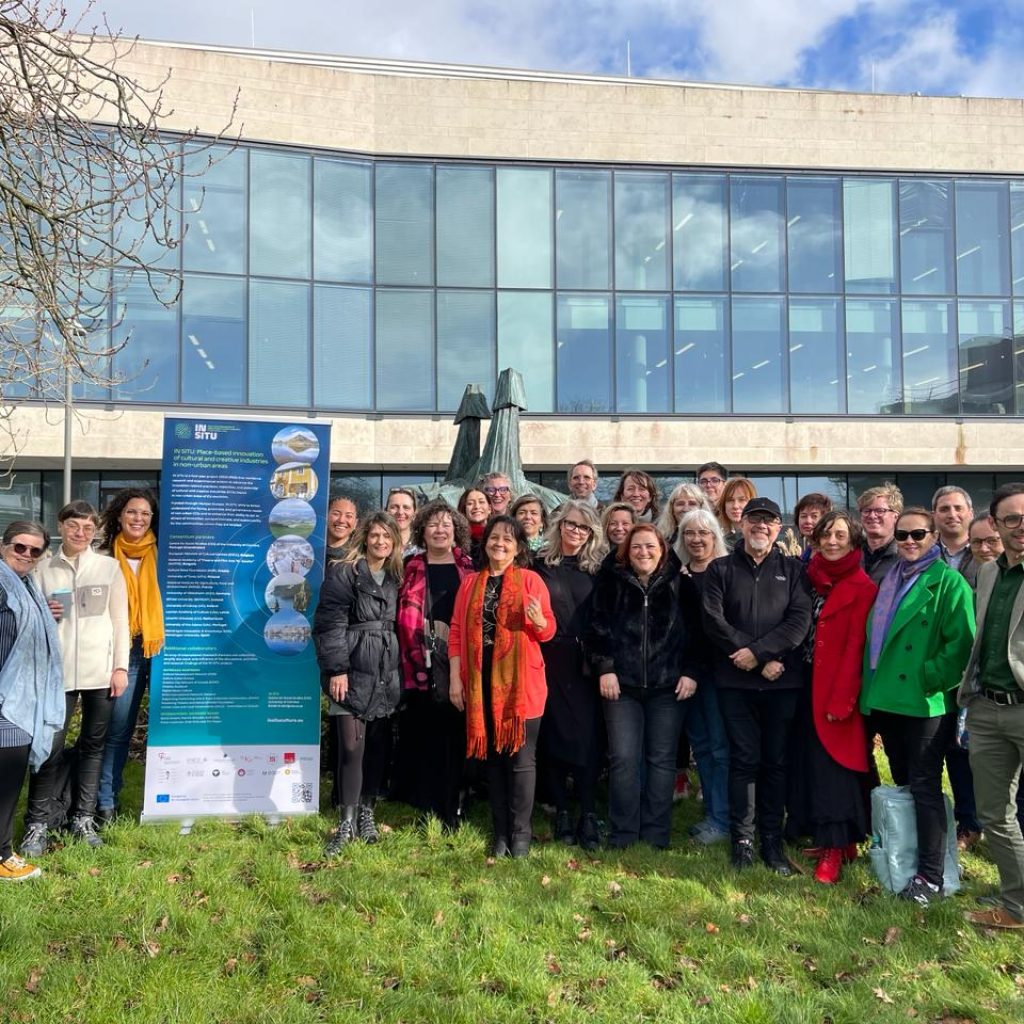
On the first day, IN SITU partners were welcomed by the Executive Dean of the UG College of Arts, Social Sciences and Celtic Studies, Rebecca Braun, who emphasised the multiple connections of the University of Galway with the region’s cultural and creative industries and also pointed out the importance of co-designing thoughts and actions, sharing knowledge, and training researchers on a transdisciplinary foundation.
The meeting continued with a general status overview of the IN SITU project by its Coordinator, Nancy Duxbury, from the Centre for Social Studies (CES) of University of Coimbra, and some brief words from Patrick Collins (UG) who characterised Galway from historic, geographic, social, economic and cultural perspectives.
The Consortium members then presented updates concerning each of the project’s areas of work, along with exchanges of experiences, questions, and ideas, which led to fruitful discussions and a wide array of new insights.
Mark Rainey (UG) and Martina Fraioli from the European Network of Cultural Centres (ENCC) started by celebrating some of the project’s main achievements related to the local Speak Out events, regional mapping of CCIs and related focus groups, the setting up of case studies in each Lab location (more information on this process can be found in IN SITU public report “Case studies”), and the ongoing work of activating and maintaining each Lab’s Horizontal Network. They went on to explain the next stages, actions and partners´ roles related to monitoring and assessing the development processes of IN SITU case studies. All the Labs then shared updates on the monitoring process and their relationship with case studies, among other topics. Nancy Duxbury closed this session by providing information on a proposed book building on the cultural mapping and local consultations in the first stage of the project (in development).
Next, Lidia Varbanova from the National Academy for Theatre and Film Arts (NATFIZ) shared updates and observations on the training and mentorship activities for the CCIs of the six IN SITU Lab areas. This included defined key topics and expressed needs, methodological approaches, use of local languages and workshop promotion strategies within the scope of forthcoming actions.
In the afternoon, Milene Tessarin from Utrecht University (UU) summarised the main research findings of their latest reports, “New domains in CCIs in non-urban regions” (D1.2) and “Socioeconomic resilience and pathways for growth” (D1.3), outlining the importance of identifying and supporting occupations and trademarks related to cultural and creative activities, and encouraging local policy interventions to foster diversification, growth and innovation, especially in non-urban regions.
In the context of the ongoing implementation of an innovation diagnosis tool, the IN SITU team from Mondragon Innovation and Knowledge (MIK) – Mondragon University, Josune Prieto and Jon Aldazabal, organised a Focus Group activity involving all IN SITU partners. The goal was to collectively identify sectors and subsectors of Cultural and Creative Industries (CCIs) with perceived development potential in rural areas, contributing to an emerging set of information being gathered from different sources (more information on another aspect of this process can be found in our latest news) and enabling joint reflections and discussions of these contributions.
The first day of the meeting finished at the University of Galway`s O’Donoghue Centre with an evening reception that featured welcoming and kind words from the Mayor of Galway, Eddie Hoare, followed by performances from local artists: David Boland, a producer and musician in Galway who talked about his experience in organising local initiatives and events, such as the Not Bad music festival; George Allen Grasso, who beautifully played the Uilleann Pipes, and taught the audience about this instrument; and writer Laoighseach Ní Choistealbha who reflected on being an artist in the West of Ireland by reciting a poem she wrote specifically for the event on this topic, intertwined with some Irish stemming from her previous work. Many Galway residents joined the Consortium in this public event meant to celebrate the IN SITU project and the local creative and art scene, generating synergies and meaningful connections along the way.
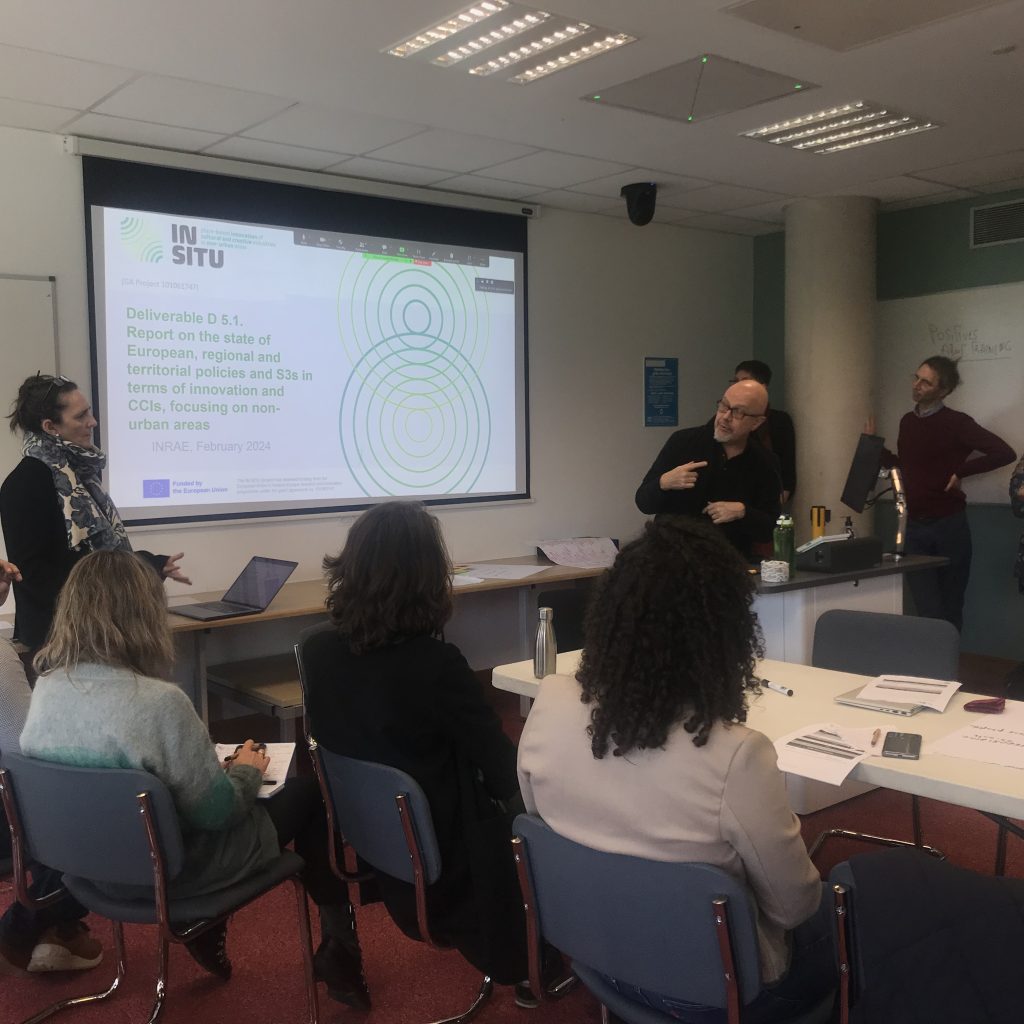
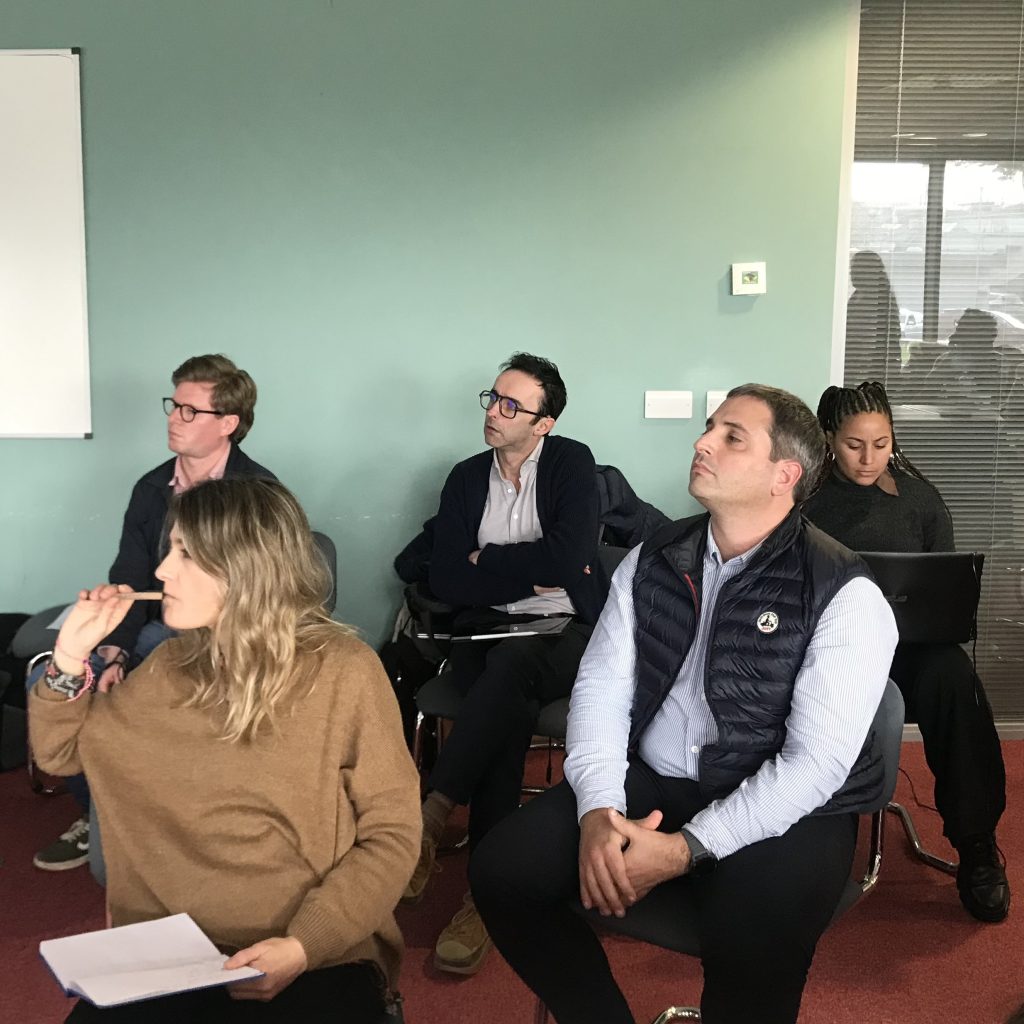
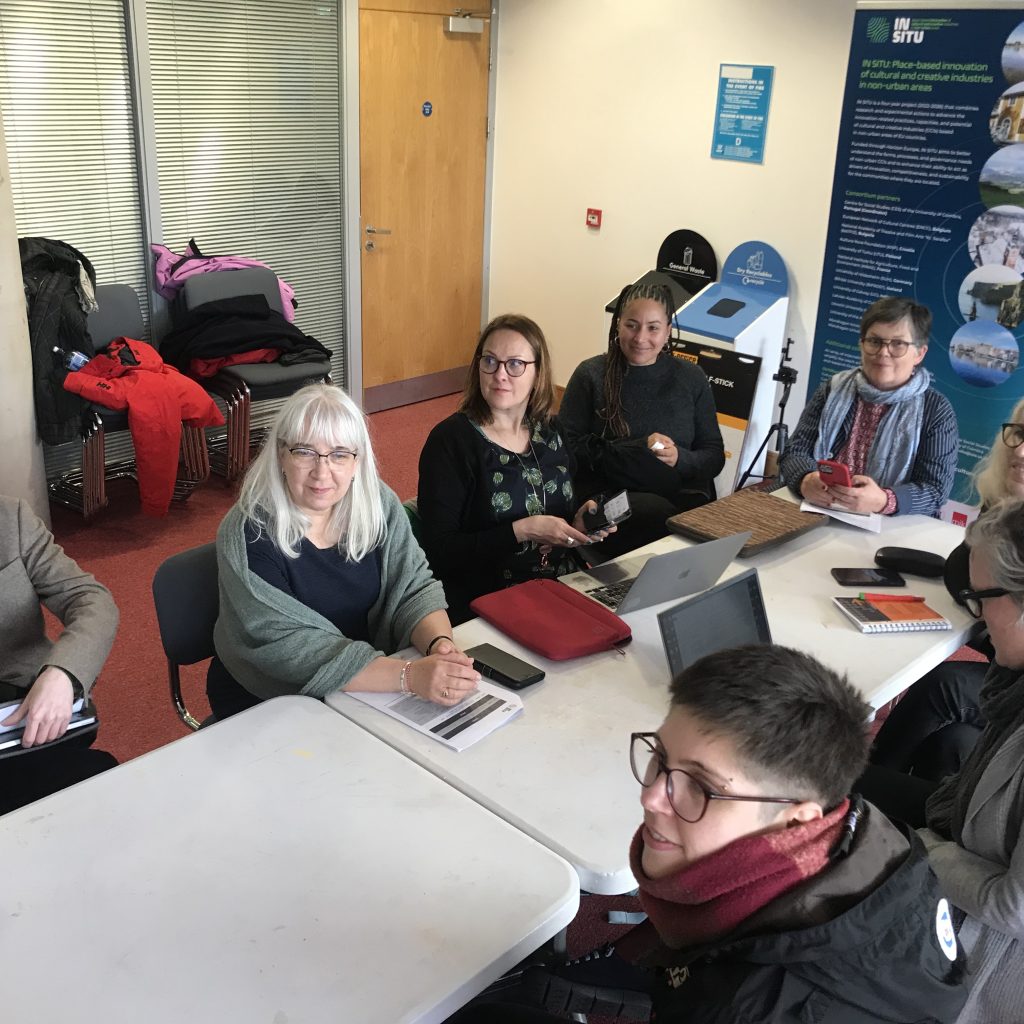
The second meeting day started with James Livesey, Vice-President for Research and Innovation at UG, who inspired the IN SITU Consortium with a presentation on his upcoming project PACESETTERS (“Powering Artistic and Cultural Entrepreneurship to Drive the Climate Transition”) and who was, in turn, inspired by the IN SITU work, anticipating the possibility of future intersections.
The morning continued with a session by David Kelly, Project Lead of the Centre for Creative Technologies (UG), who talked about the great potential of Data Visualisation tools as a powerful way to reach different audiences – using graphic representations to facilitate the understanding of data and make scientific results more tangible and intelligible. Oisin Slevin, an engineer at the UG Department of Geography, then showed partners Galway’s “digital twin” and accompanied us on a virtual reality visit of the streets of the city.
IN SITU partners then turned to discuss the transversal gender dimension of the IN SITU project, joined by Master’s students from the University of Galway. This session was initiated by Julius Heinicke, Beate Kegler and Helena Walther from the University of Hildesheim (SUH), who presented key findings from their recent research, recommendations and future plans (more information can be found in the IN SITU public report “Gender dimension of CCIs in non-urban areas”). Then, Pilar Damião de Medeiros from the University of the Azores (UAc) presented a draft outline of a booklet on the gender dimension of the IN SITU project, to be delivered at the end of the project. The session also included an insightful interactive workshop related to individual and collective, local and global perceptions on gender and generation of possible strategies to promote gender equality in different contexts within the framework of the IN SITU project.
Next, André Torre and Maryline Filippi from the National Research Institute for Agriculture, Food and Environment (INRAE), in collaboration with Julius Heinicke, Beate Kegler and Helena Walther (SUH), presented the in-process report on the “State of policies and S3s on innovation and CCIs in non-urban areas” and a second report-in-progress, “State of cultural policies for CCIs in nonurban areas”. Then, in a workshop entitled “Mapping Cultural Policies, Spaces and Actors,” participants were invited to brainstorm in small working groups about the Where? Who? and How? dimensions of cultural policy decision-making in the different IN SITU Lab regions, as input into the project’s policy-related research work.
In the next session, Antonija Letinic from Kultura Nova Foundation (KNF) shared updates on the organisation of the IN SITU Conference Horizons of Sustainability: The Power of Creative Innovation for Transformation of Rural and Non-urban Futures, to take place 25-27 September 2024, in Šibenik, Croatia, which will be preceded by a related Summer School and followed by the fourth in-presence IN SITU Consortium meeting. Several topics were discussed, such as the Conference programme, concepts and themes, and the timelines for the conference call for proposals and summer school registrations. The final programme outlines and the conference call for proposals will be made public in March 2024.
The afternoon ended with an enriching conversation with IN SITU International Advisory Board members Avril Joffe, Jude Ortiz, Sylvia Amann and Tim Wojan, who provided very useful and constructive feedback on the IN SITU journey and results so far, igniting a broader discussion on culture, creativity and innovation in non-urban areas and our role as researchers of the diverse and dynamic ecosystems embraced by the project.
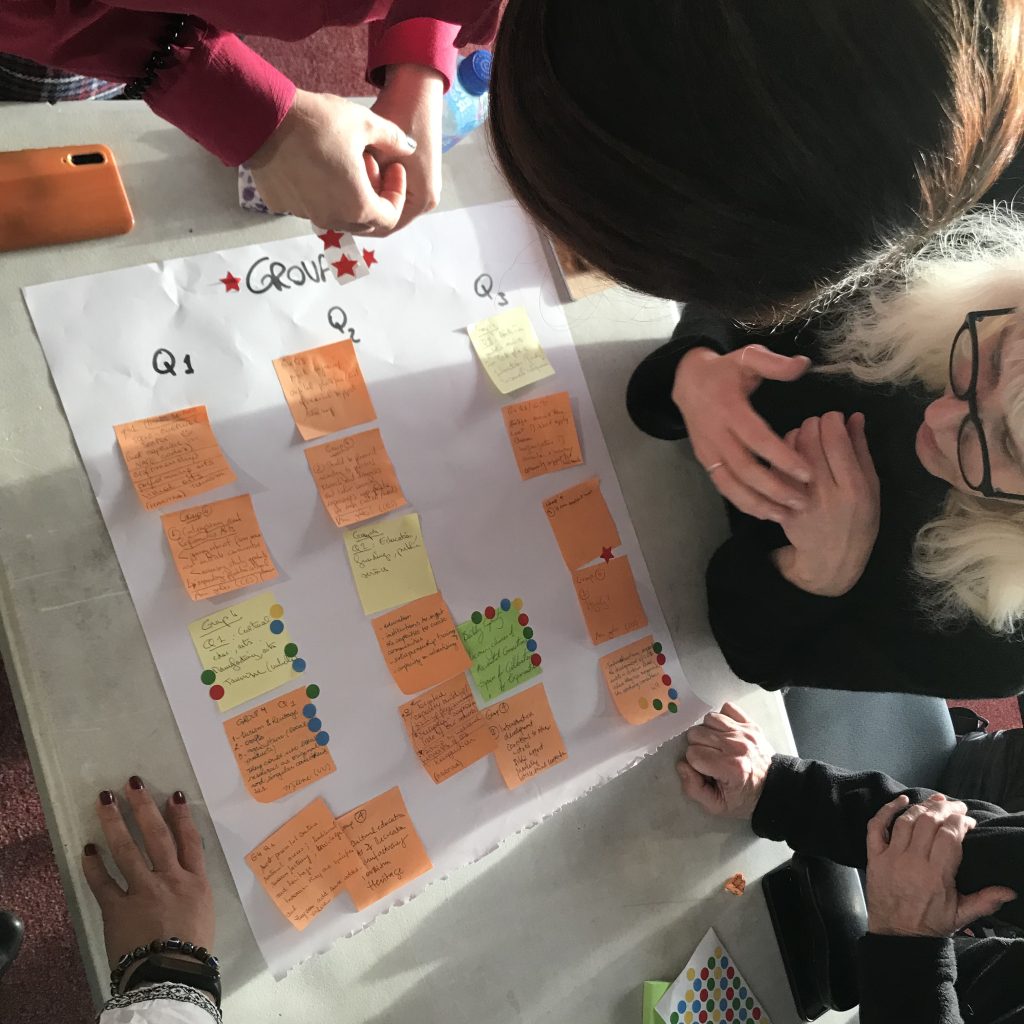
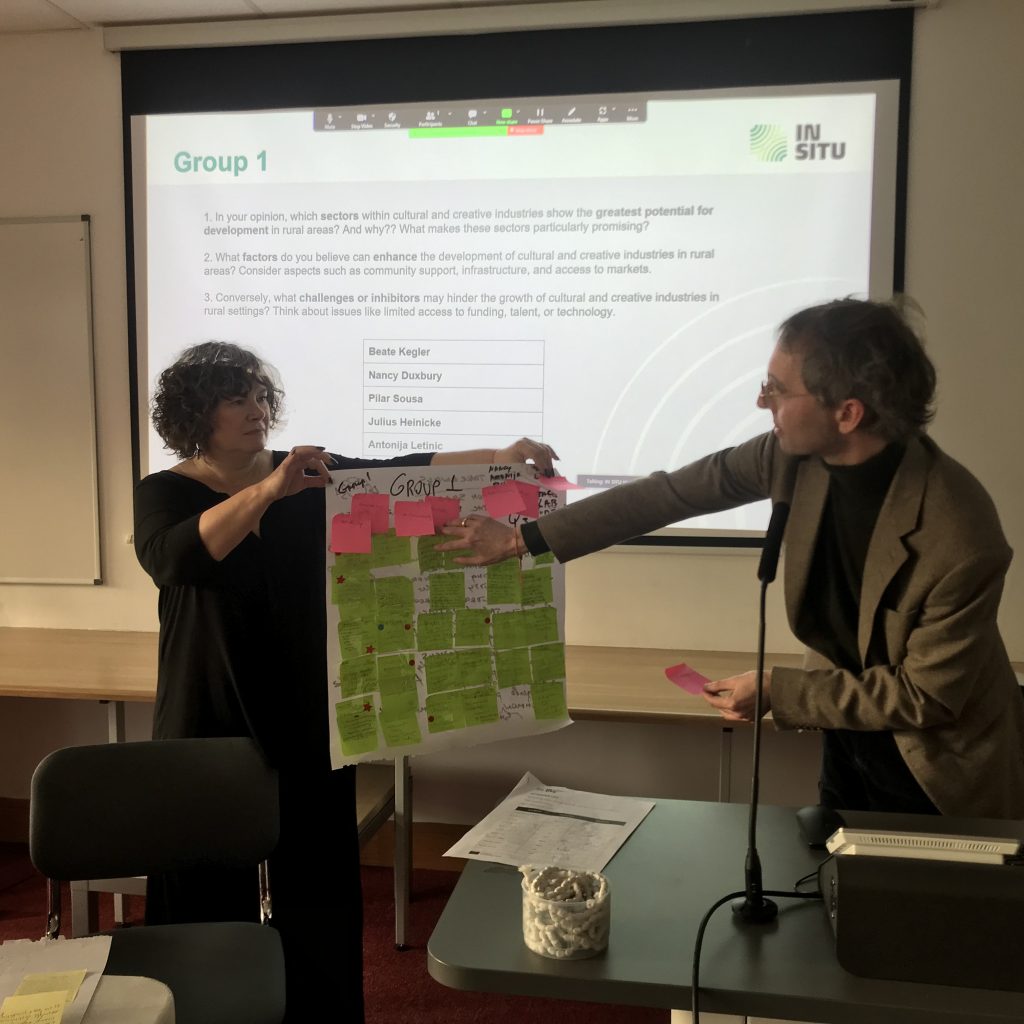
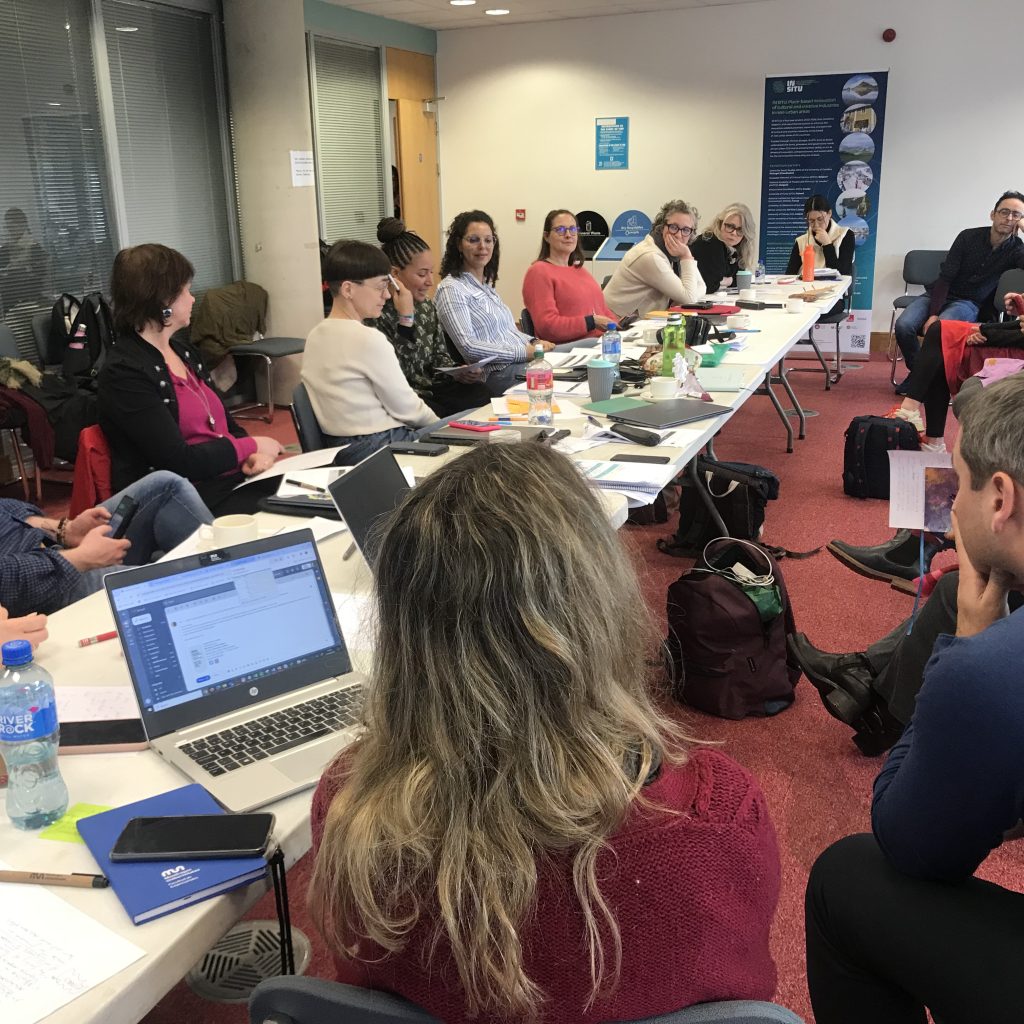
On the last day, the morning began with Ana Jaleco (CES), the project’s newly arrived Communication, Dissemination and Sustainability Manager, who presented the project plan for dissemination and exploitation of results. The initial focus was on previous achievements, observations and suggested adjustments, followed by a detailed description about specific actions directed towards IN SITU target audiences and the roles of each partner in these contexts. This session also included an interactive activity aimed at promoting individual and collective reflection on the communication actions currently carried out within the IN SITU project by the Consortium members.
Finally, Paola Di Nunzio (CES), the IN SITU Project Manager, called the Consortium’s attention to some relevant administrative and planning items and incorporated into this session a moment of collective reflection on the human side of the project’s relationships, which highlighted how important it is to continuously nourish and strengthen bonds of trust and proximity between all the IN SITU members for the effective implementation of the project activities and its objectives.
To close the day, the meeting participants were invited for a walk under the guidance of Kieron Denis O’Connor from the University of Galway’s Archaeology Department who showed to the IN SITU partners some of the city’s inner treasures, revealing crucial aspects of Galway’s ancient history and providing a more complete understanding of this beautiful land vibrant with heritage, art and culture.
Some members of the Consortium prolonged their stay in Galway for a series of creative industry workshops conducted by IN SITU partner National Academy of Theatre and Film Arts “Kr. Sarafov” (NATFIZ) in collaboration with the University of Galway (UG)/UrbanLab Galway and the UG Centre for Creative Technology. More details and feedback on the IN SITU workshops will be available soon in the news section of the project website.
After such valuable moments sharing results, reflections, ideas and aspirations – in parallel with gaining new insights and inspiration and learning from each other’s experiences in different locales – the overall feeling at the end of this meeting is of great enthusiasm to pursue this journey with renewed energy and imagination, a wide array of meaningful insights, more integrated perspectives, and stronger Consortium connections. Thank you to all the partners, local artists, university researchers and all the people IN SITU met along the way for contributing to make the days in Galway rewarding and memorable!




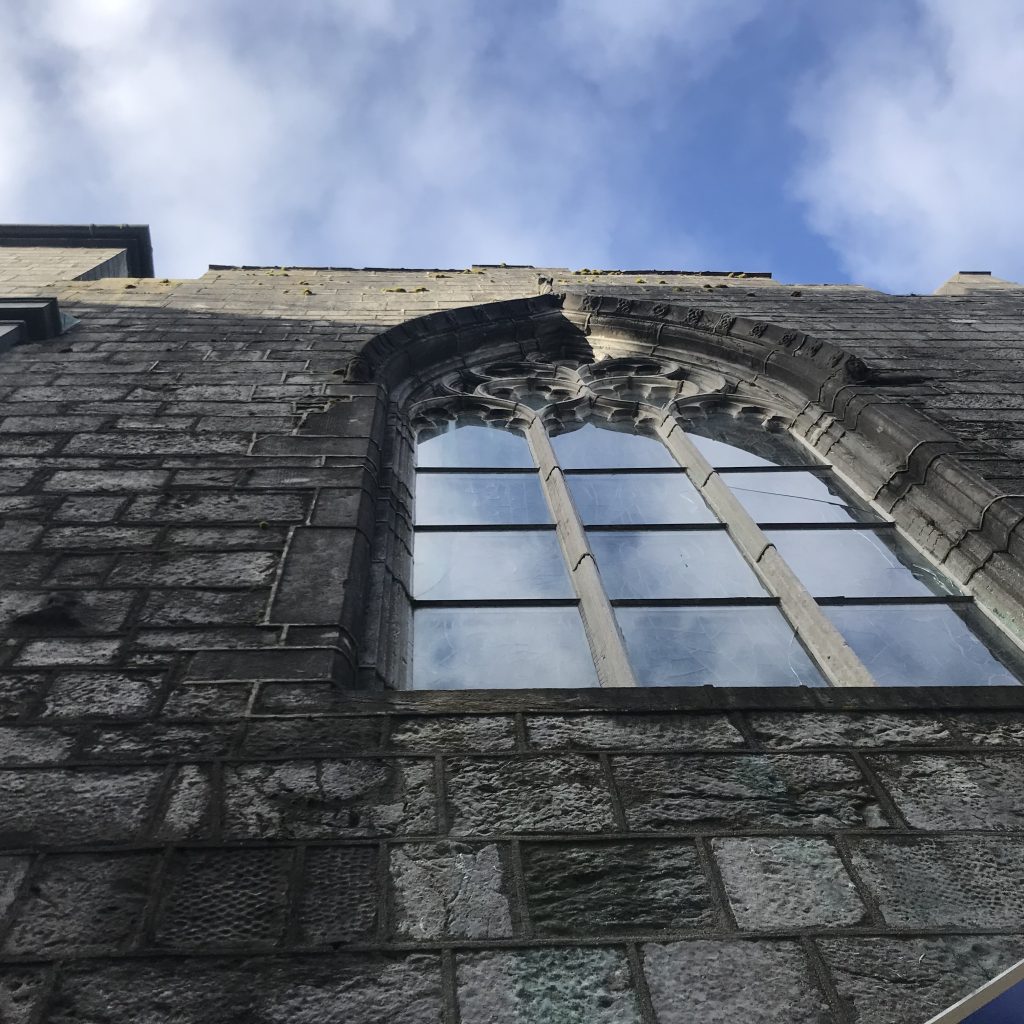
For further information:
Nancy Duxbury – IN SITU Project Coordinator
Centre for Social Studies (CES) at the University of Coimbra, Portugal
Email: in-situ@ces.uc.pt
Tel: +351 239 855 570 Web: https://insituculture.eu
The “IN SITU: Place-based innovation of cultural and creative industries in non-urban areas” project combines research and experimental actions to advance the innovation-related practices, capacities, and potential of cultural and creative industries (CCIs) based in non-urban areas of the EU. The project is funded by the European Commission under the Horizon Europe Program (project no.101061747). It began on July 1, 2022, and will run for four years. The IN SITU project consortium comprises 13 Full Partners from 12 countries, consisting of 11 research institutions, a European-wide cultural network, and a national cultural foundation.

